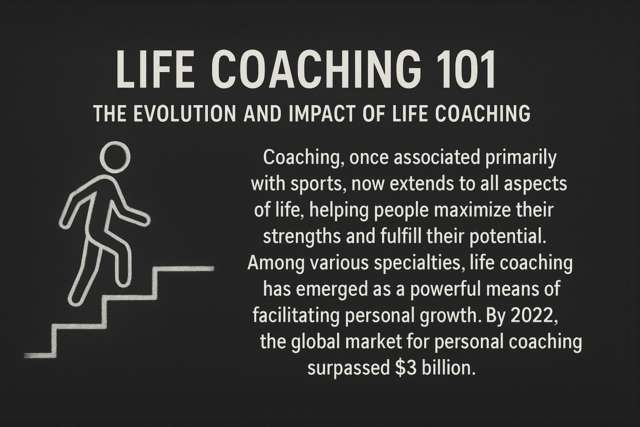Introduction: In the fitness business you sell your services, programs, knowledge and skills. And just as if you are selling products in a store you have pay attention to the buyer. You have to know who your clients will be, what they want, what they will pay for it, and how to get their attention when there are so many others selling the same products. Take a look at how a retail business gets consumer attention. They send fliers to your mailbox, they put up large signs, they offer specials and package deals, they have a website where you can buy things, they pay people to talk to you, help you find what you need and guide you to the right area.
The fitness industry is not a lot different. You have to pay attention to the community and who lives there, because that is your customer base. Know the details of the population. Find out what other fitness businesses are working in your community, how many clients they serve and what they don't offer. Talk to people both in the same business and those not involved. Find out what they think, what they might use, and what experiences they've had both good and bad. You have to do some research to decide what services are wanted, needed, what they might look like and how you can put them into a program.
A. Who is your client? Your client is anyone who is within your specific community. Unless you offer a program that involves clients or services that are rare and then you might have people from further afield. For example, if you have a trainer who specializes working with people with disabilities, can sign, or understand special needs populations, then you might actually attract people who are outside of your community. You can decide who your clients are by where you open your business, services you offer, and where you market your skills.
Your client can be that person who has never been to a gym or one who has always been a gym member. Your client might be a member of a gym who is looking for a trainer to work within her own schedule. Your client might be a company who hires you to work with their employees or you might find there are clients in the healthcare field, the physical therapy field, or in the preschool areas. Your clients might be those who use the internet and download your videos, your e-books and your information on your website.
Your clients are only limited as you limit your services and yet you cannot be all things to all people. Some gyms try and they get very large but it is a difficult dilemma for an owner to be unable to personally touch each part of his business. In this you would need top managers or system operators to work for you.
Maybe you are interested in the new baby and parent needs for helping mom get back in shape and having a social outlet with other new parents. Possibly you are interested in working with obese clients who won't go to a gym because they are so limited in how they can move. Don't disregard anyone or write people off because they cannot come to you. You can take your services to them. Don't discount people due to age or ability or economic level. Open your eyes and really see where you can fit into the lives of those where you live and work.
B. What is the client expectation? Client expectations are all over the place. They are as different as the number of possible clients you will serve. Clients come to you for help. They want you to help them with a goal. Your job is to listen and fill in the blanks, ask questions and take the time to know exactly what it is they want. Some want to be healthy, others to lose weight and still others want to build their strength or endurance or both. Many older people are becoming more open to competitions that push them physically. Young people like fun fitness where they can socialize with others.
What a client tells you and what they really expect can be two totally different things. As a personal trainer, you need to figure it out so you can build a program that fits their needs and their goals. Your first assessment of that needs to happen in your first meeting. At least partly. If you see someone in the park and they don't have much time to talk, at least find out what they need or want and get their number. Then you can set up a time to talk more in depth. Let them know that you need to know where they are coming from, what they are thinking they want, and what do they expect from you.
Clients are to be treasured like gold, unless of course they are such a problem client that you are better off severing the ties. That happens and you need to be prepared to say to some clients that you are not the trainer for them. Your time is too valuable to spend it with negative, complaining people who will probably speak negative of you as well.
Your initial assessment of a community where you intend to practice will offer clues to the type of programs you should set up. Study your community, get to know the people personally, take time to talk, walk around, and shop there. Your business will be part of the community of businesses and you want to fit into their organizations, become working partners for community action and positive community support. Look for ways to become involved. When you are involved in your community, you are involved in the lives of your clients.
Look for people in your community that everyone trusts and who know lots of other people. Real estate professionals, doctors, or even the barista. Wear you uniform, have cards ready in your pocket that identify who you are and what you can do for them. Give them out freely. Even carry small brochures about your willingness to fit a program individually. Start writing about your work. Toot your own horn. On your Facebook page write a short blip every day. Use your business logo and make your connections open, fun, intelligent and interesting. Let people see you are a great person who has skills and the desire to help individuals with their goals. Put out tips and information that show you are well rounded in the fitness industry. Advertise to your friends and their friends a free exercise time in the park.
Clients will not just walk in your door. You have to find them and put out the candy for them to follow. After you get comfortable writing for Facebook begin to blog on your website. Come up with your own creative ideas and copyright them. Write a short e-book and offer it for free from your website. Make it great and then sell the next few.
C. How do I retain clients? Retaining clients is the most important place to spend time next to attainment of clients. A client in your program is worth two clients yet to know who you are and why they need you! In other words, pay attention to your current clients. Get to know them, make sure they know about your accreditations, your skills, your writing, your specialties. Listen to them, develop programs around what they want. Give them a break on programs they sign up for after their initial one. If they make any suggestions about anybody that might be interested, get their name and number and send home information with your client to share.
Let your clients know that your best source of clients is through their referrals. Reward them when their referral signs up. Find out what your clients friends and relatives want. Listen and learn. Celebrate with your clients as they meet their goals and objectives. Put their picture on your Facebook page as a success or on your website. Get them to write a short reference. However, do this only with their approval. Volunteer to be a host of a free exercise night at your client's church, business, or social club. Help your clients feel involved in what you do. If they are running in a 5-K give them a t-shirt to wear as advertisement or run with them.
Retaining clients is basically about giving attention to and catering to the client's needs. Since you sell services, you have to sell what the clients want. You have to know what they want and when they want it. Showing respect to all clients and being sincere with them is a given. If a client has a child who needs someone to sponsor their team, do it. If they need an extra hand at coaching, do it. If you ever get so big that you are not responding to the community where you live, then you will find yourself outside of those connections. Even in large cities this can hurt your business.
When your clients meet their goals and you celebrate with them, ask them if they'd like to set a new goal that you could work together to reach. If not stay involved and interested. Prior clients will be another great source of referrals and after a few months, you can contact them and offer a check-up class or evaluation class for free to see how they are doing.
D. Conclusion and Assignment: The most important thing any business owner can do to gain and retain clients is to get to know that client. Know what they want, what they think, and what they do. Listen to the neighborhood as it moves through a day. Not just the individuals but the community as a whole. What are the concerns, what are its strengths, and where can you make a difference? Who are the pillars of trust and who has connections that you should get to know to share that you are honest, ethical, skillful at what you do and there to help people improve their lives. You want to make a living serving people who want and need your services.
Your clients are the people where you live. The people where you live are the pieces that form the community. So as the community goes, the people go and your clients go. As you work to affect your community in positive ways, you are affecting the people in positive ways and so your potential clients will be positive toward you. It is all connected like the systems in your business. Every community has systems and processes and you need to figure out what they are, how they work and who makes them continually move.
When you choose a place to plant your roots choose wisely. Don't just pick the place where you live. You can always move, but do it before you start your business. A business, when moved, is forced to start over. Look, listen and reflect on what you find. You can never go wrong if you talk to people, listen to them, and move among them to know what they are about. If you can connect with a vibrant community, your base has a head start. If you plant your business in a community thinking you will change it, think again. Remember that a community is a system and you are just one part of that system. No matter how well you run your part, if the rest of the process isn't working your business has little hope of survival.
Your assignments for this article:
1. Brainstorm a list of 5 places you might open your business.
2. Spend time in each area talking to people, businesses, and listening
3. Narrow your choices down to three.
4. Go back to those three and spend more time. Make notes.
5. Make a final decision on the community you choose to start your business and why.
|
P.T. Tips Besides learning about the people in a community, there are other things to look for. Will your vision and image work in this area and will the other business support you or compete with you? Are there possibilities for potential employees and is there room for growth? Is the area safe for you and your clients and is the zoning approved for businesses?
Do the costs of placing your business in the community balance with the possible income? How will the tax rates affect you and what is the cost of wages that will be required? Are there possible government incentives available? In other words, will this community support your business in every way? The answers to these questions will be important in your decisions and in the information you learn during visits to your top 5 locales under consideration. |































